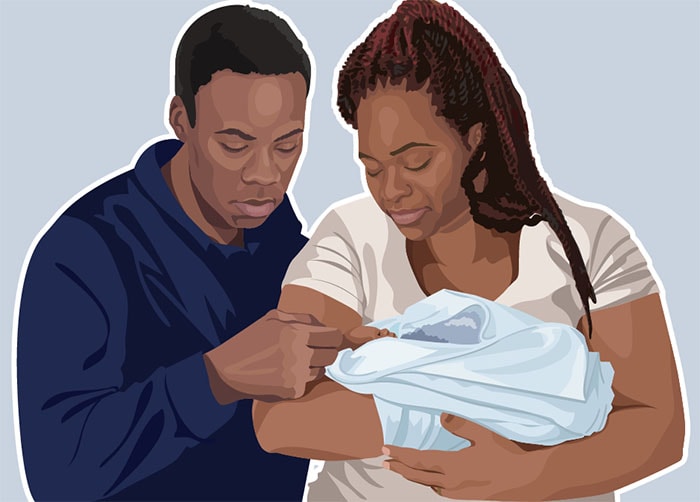Black Mothers Are More Likely to Experience Stillbirth Compared to Hispanic and White Mothers

[ad_1]

Many families are affected by stillbirth, which is the loss of a baby at or after 20 weeks of pregnancy. A study from the Centers for Disease Control and Prevention (CDC) found that Black mothers were more than twice as likely to experience stillbirth compared to Hispanic and white mothers. While the full reason for these racial disparities is not clear, differences in health problems that occur during pregnancy or underlying health conditions may be linked to these differences. Improvements in women’s health, with regular access to quality prenatal care, can potentially reduce the risk of stillbirth for women and families.
Read the full scientific article.
Main Findings
- During 2015-2017, 1 in every 166 pregnancies ended in stillbirth in the United States.
- Almost 1 in 3 stillbirths did not have a cause specified.
- Stillbirth rates were higher in the southern United States.
- Black mothers were more than twice as likely to experience a stillbirth compared to Hispanic and white mothers.
- Health problems that occurred during pregnancy or underlying health conditions were listed as the cause of the stillbirth three times more often among Black mothers than among white mothers.
- Improvements in women’s health, with regular access to quality prenatal care, can potentially reduce the risk of stillbirth for women and families.
- Trained healthcare professionals can be a great resource for mothers and families during the grieving process. Grief counseling can help mothers and families cope with loss.
About This Study
CDC scientists looked at information from 2015-2017 Fetal Death Data Files and birth certificates provided by the National Vital Statistics System, which represented the most current data at the time of analysis.
About Stillbirth
A stillbirth is the death or loss of a baby before or during delivery. Both miscarriage and stillbirth describe pregnancy loss, but they differ according to when the loss occurs. In the United States, a miscarriage is usually defined as loss of a baby before the 20th week of pregnancy, and a stillbirth is loss of a baby after 20 weeks of pregnancy.
Our Work
CDC works to learn more about who might have a stillbirth and why. CDC tracks how often stillbirth occurs and looks at the causes of stillbirth. Knowledge about the potential causes of stillbirth can be used to create recommendations, policies, and services to help prevent stillbirth. To learn more about CDC’s activities, visit the Stillbirth CDC Activities page.
More Information
Scientific Reference
Pruitt SM, Hoyert DL, Anderson KN, Martin J, Waddell L, Duke C, Honein MA, Reefhuis J. Racial and Ethnic Disparities in Fetal Deaths — United States, 2015–2017.
MMWR Morb Mortal Wkly Rep 2020;69:1277-1282.
[ad_2]
Source link
